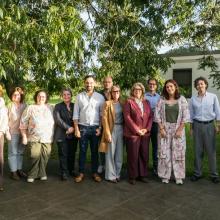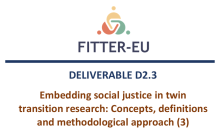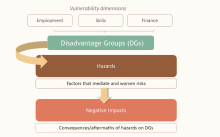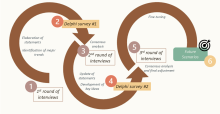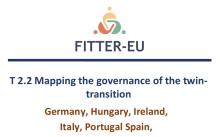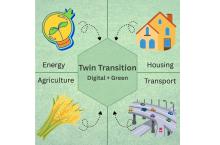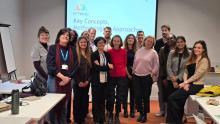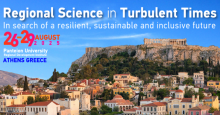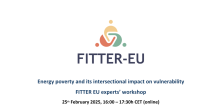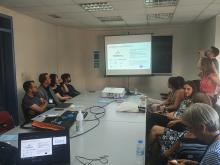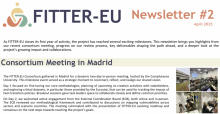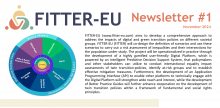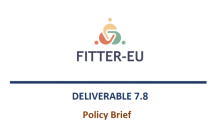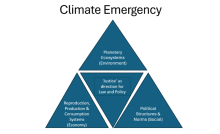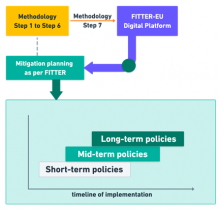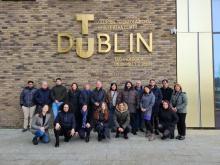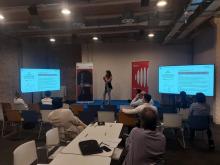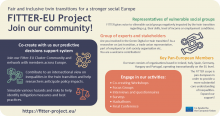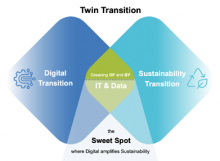Turning Research into Action: FITTER-EU Charts a Fair and Inclusive Twin Transition for Europe
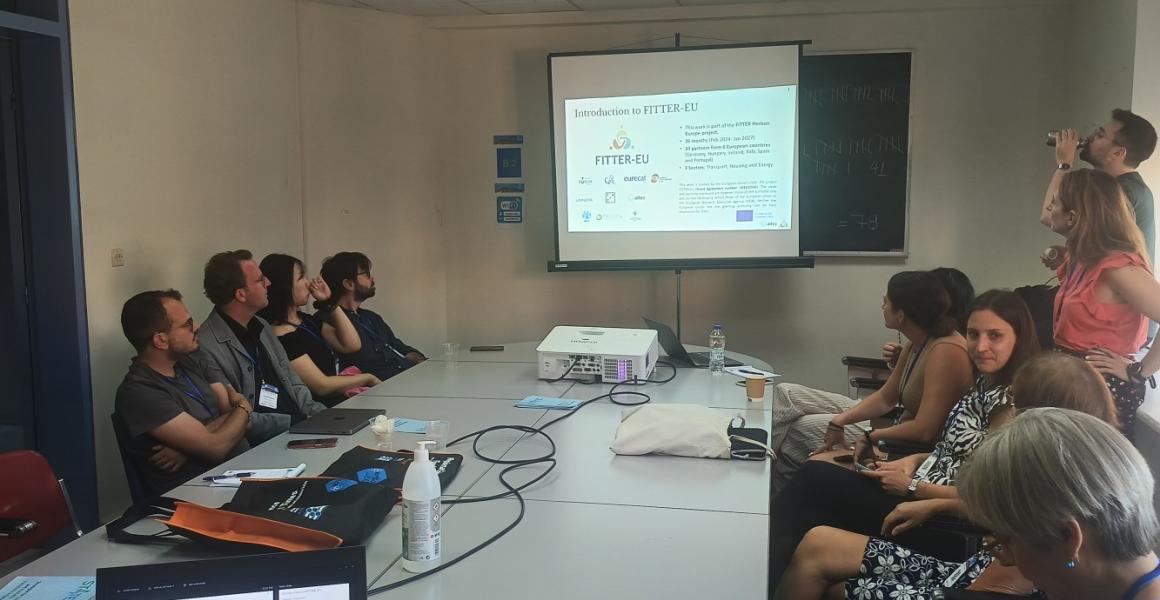
The FITTER-EU project and its innovative paper “An Evolutionary Tree Framework for a Fair and Inclusive Twin Transition in Europe” were highlighted during the special session on Twin Transition and its Unequal Geography at the ERSA 2025 Congress in Athens. In the presentation, Dr. Francisco Santarremigia Rosaleny and Dr. Gemma Molero Prieto , both Senior Researchers at AITEC, showcased the collaboration between AITEC-INTL, TFC Research and Innovation Limited, and TU Dublin by demonstrating the FITTER-EU project’s research-to-policy impact.
The session, S88-S1: Twin Transition and its Unequal Geography, explored how Europe’s green and digital transformation affects regions unevenly. It brought together policymakers, industry representatives, and academic researchers to share governance strategies that include every citizen. During the session, FITTER-EU stood out for converting complex research into user-friendly tools, helping policymakers forecast risk and plan mitigation measures.
FITTER-EU’s framework employs an evolutionary tree metaphor of seasons, Winter -> Spring -> Summer to map research stages into policy-ready outputs. It breaks down complex data into actionable tools beginning with vulnerability data in the form of a map (Winter), progressing to KPI-driven scenario building (Spring), and culminating with a gamified policy-facing digital platform with an Intelligent Predictive Decision-Support System (Summer) that is designed to facilitate decision making.
The paper details the conceptual and methodological innovations of FITTER-EU, describing how the evolutionary tree framework allows policymakers to run what-if scenarios and instantly visualize outcomes. Also, methods of stakeholder engagement are elaborated upon in the paper, illustrating how feedbacks from local communities, industry, and governments is integrated into the model to ensure fairness and inclusivity.
The project’s methodology focuses on practical implementation, analyzing six countries which are Germany, Hungary, Italy, Ireland, Spain, and Portugal, across four priority sectors: energy, transport, building and housing, and agri-food. This guarantees that the approach can be reused and adapted to different circumstances. Furthermore, FITTER-EU introduces aggregate risk indicators and simulation tools, allowing policymakers to predict the communities that may be hit the hardest by twin-transition policies and the mitigation actions that work best and are fair.
What distinguishes FITTER-EU is its stakeholder-led approach, meant to create anticipatory and inclusive policymaking. By putting justice and inclusivity at the center of Europe’s green and digital transformation, the project is establishing a model for future policy development.
ERSA 2025, the Congress organizing this session, is recognized as Europe’s leading forum for urban and regional science. The conference gathered more than 1,000 participants to discuss innovation, sustainability, and regional development. It allowed initiatives such as FITTER-EU to showcase the ways in which academic research can shape policy instruments, bridging the gap between evidence and decision-making. The congress also put strong attention on interdisciplinary collaboration and featured panels integrating economic, social, and environmental aspects of the twin transition. More on the congress: https://ersa.eventsair.com/ersa2025/
For those interested in the technical details of how the evolutionary tree framework turns research into policy-ready solutions, the full paper is available here: https://lnkd.in/dGCyEpY7
FITTER-EU is a project that demonstrates the successful integration of research institutions and industry partners and its tools are already shaping discussions around inclusive governance, transition policy, and decision-support systems.

